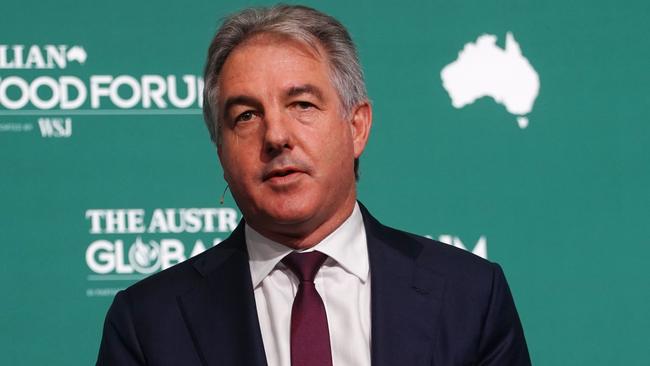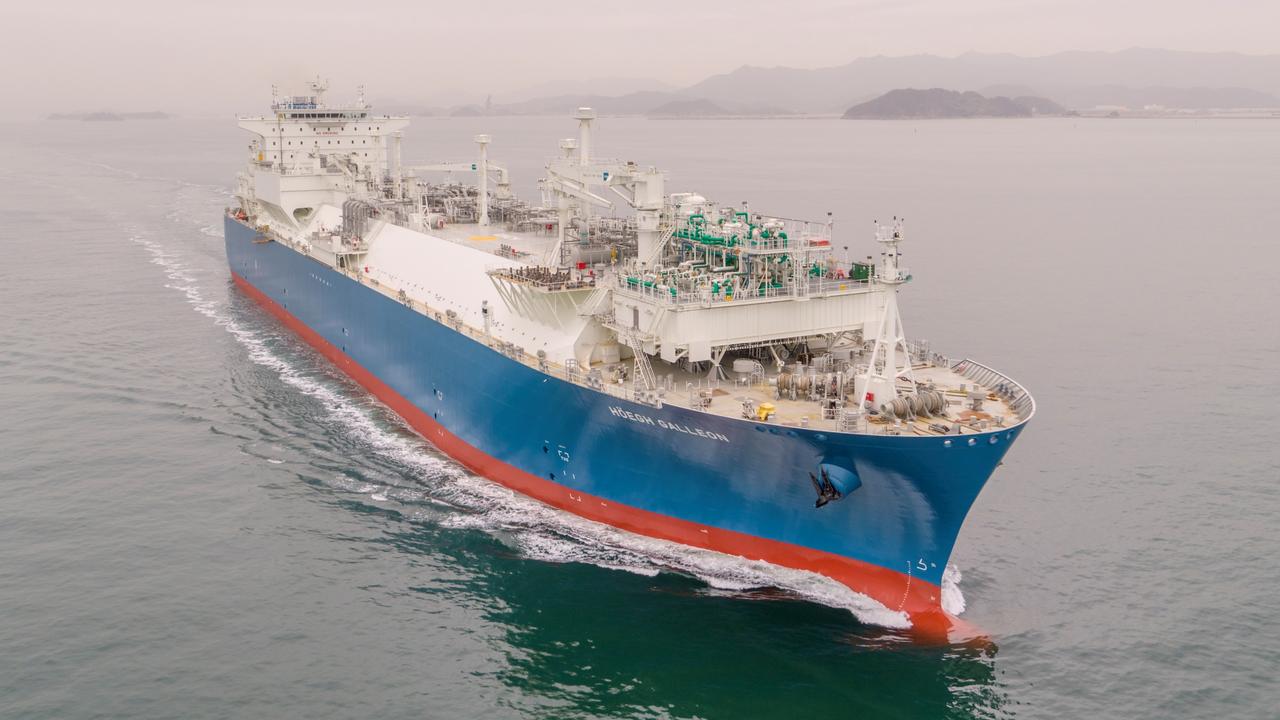Donald Trump’s tariffs will increase world food prices, says GrainCorp CEO Robert Spurway
As Australian farmers plant their winter crops in volatile times, major wheat, barley and canola exporter GrainCorp predicts the Trump tariff war will push up food prices.

Business
Don't miss out on the headlines from Business. Followed categories will be added to My News.
The trade war sparked by US President Donald Trump is likely to push up global food prices amid fears dry weather is affecting crop production in China, says GrainCorp CEO Robert Spurway.
Mr Spurway said tariffs and counter-tariffs were effectively a tax on imports and, in the case of food, an additional cost consumers in many countries could not avoid.
“The countries that we [Australia] export to need the food that we provide, and we’re able to grow that food and provide it to them better than anyone else can,” he said. “Particularly on food where it’s not a discretionary expenditure, the only implication of tariffs is it increases the cost to the consumer. As we all know, tariffs broadly can create a recessionary-type environment, and that can damage demand, except in food where people need to eat.
“We’ve seen the resilience of food over the decades in that sort of environment.”
Australia as a major farming nation and significant food producer is shielded from price rises set to affect consumers in Asia, the Middle East and other parts of the world.
BHP chief executive Mike Henry told this week’s Bank of America conference that any escalation in the trade war would have minimal impact on the company’s big bet on agriculture via potash production.
“Potash is going to be increasingly required for agricultural use as a growing population seeks more and better food production from constrained farmable land,” Mr Henry said.
GrainCorp’s shares jumped 8.8 per cent to $7.78 on Thursday after the company upgraded earnings and profit guidance, maintained its dividend windfall and extended a share buyback.
The company notched up a strong first-half performance, booking a profit of $58.1m, up 17 per cent on the prior corresponding period.
The results show the company was able to cash in on another above average east coast grain harvest despite tight margins after solid crop production in most of the world’s big exporters led by Russia and the US.
GrainCorp’s underlying profit in the six months to March 31 was $69m, up $12m on last year, and revenue jumped 21 per cent to $4.09bn. Underlying earnings before interest, taxes, depreciation and amortisation (EBITDA) totalled $202m, up from $164m last year. GrainCorp will pay an interim dividend of 24c a share comprising an ordinary payout of 14c and a special dividend of 10c.
The on-market share buyback has been increased to $75m, from $50m.
China has unveiled an action plan to reduce the amount of soybean – a big export from the US – and other grain fed to livestock as part of food security measures.
Reports from China indicate it is part of a wider plan that includes warnings against food waste by consumers and grain spillage during transport and storage.
Mr Spurway said GrainCorp had shown it could adapt quickly to changes in global trade flows, as it had when major customer China effectively banned barley imports from Australia in 2020 by imposing an 80.5 per cent tariff.
In states where it has a vast supply chain network and port terminals, GrainCorp noted positive conditions in Queensland and northern NSW with less favourable soil moisture levels in parts of southern NSW and Victoria.
Mr Spurway said there had been few drought or other supply disruptions in the world’s main grain producing nations, which had put pressure on margins.
“There’s been some reports of dryness in China, and that could certainly reduce their domestic supply and provide a benefit for imported products, and therefore exports from Australia,” he said.
“But always the big crop-producing areas of Russia and the US are the ones that have a significant impact on the market.”
US farmers have warned that Trump administration plans to target China’s maritime, logistics and shipbuilding sectors with huge port fees could harm wheat and other grain exports. Mr Spurway said US tariffs and any backlash from affected nations in terms of counter-tariffs had the potential to work in GrainCorp’s favour.
“It certainly can create volatility, and that creates opportunities for an agile and well-funded company like GrainCorp,” he said.
GrainCorp, which has minimal exposure to the US, updated it full-year guidance to underlying EBITDA of $285m-$325m and underlying profit of $65m-$95m. That compares to earlier expectations of underlying EBITDA of $270m-$320m and underlying profit of $60m-$90m.
More Coverage
Originally published as Donald Trump’s tariffs will increase world food prices, says GrainCorp CEO Robert Spurway





